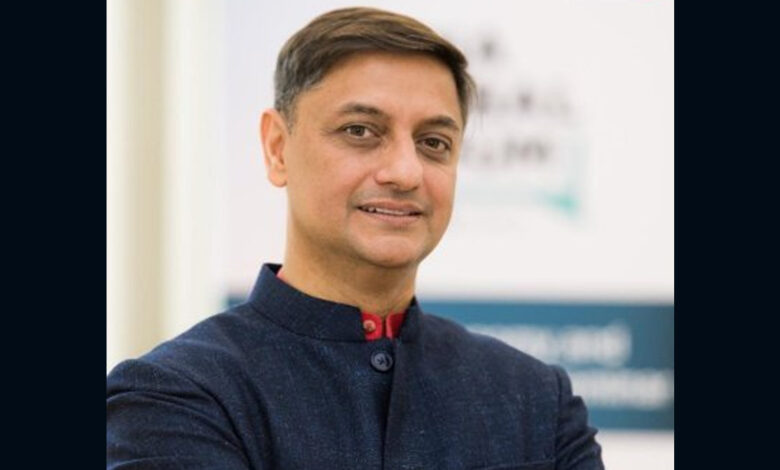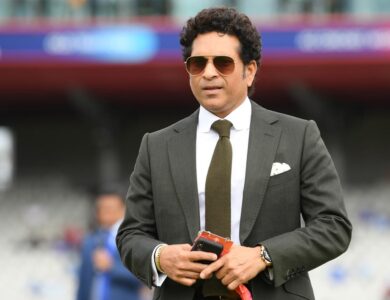
Thought Leadership Sanjeev Sanyal accepts chancellorship of Pune’s Gokhale Institute
It remains now to be seen how his extraordinary new responsibilities as Chancellor of Gokhale Institute of Politics and Economics in India, one of India’s premier research institutions for economics and social sciences, will characterize his new role as an economist, author, and policymaker. His appointment is seen as just another strategic fill in this long tradition of fostering high-quality economic research by the institute while injecting new perspectives into its academic and policy-oriented initiatives.
Gokhale Institute: A Legacy of Economic Excellence
Founded in 1930 by R. R. Kale, in memory of Gopal Krishna Gokhale, a renowned Indian nationalist leader, the Gokhale Institute of Politics and Economics has established itself as a beacon of economic thought and policy studies in India. Its research historically influenced policy-making processes in India and enabled the development of a series of strategies that would change the agrarian sector and determine several financial policies. Over the last sixty years, the institution has carved out a position for itself in the development of a few of the most distinguished economists, scholars, and public intellectuals India has ever seen.
The chancellor for this institute is Sanjeev Sanyal; his experience is the perfect mesh of economics, urban planning, historical research, and policy-making, and it propels GIPE toward both academic and real-world impact in its work. Sanyal stands out in this context as uniquely guiding the institute into an era where, clearly, interdisciplinary approaches and global perspectives have critical implications in tackling India’s developmental challenges.
About Sanjeev Sanyal: A Brief Background
Sanjeev Sanyal’s work life is the right blend of the private sector and public service. He had a rich and diverse profile as his career had started in investment banking, and later he moved to public policy and served as economic adviser. The professional journey in Shri Ram College of Commerce (Delhi University) and later in St. John’s College, Oxford, took him to spend more than two decades at Deutsche Bank, finally as Managing Director and Global Strategist.
Sanyal’s interest in urban development and history has always been a great component of his intellectual endeavour. He has written many books where economic analysis is replete with historical insight, opening up to the readers a new perspective on India’s past, present, and future. His works, such as Land of the Seven Rivers and The Ocean of Churn, bring inside narrations, going through to the cultural and economic histories of India and South Asia and penetrate deep within the complex subjects and come out more accessible for a wider audience.
He has since joined the Indian government as Principal Economic Adviser in 2017. This role allowed him to take his idealism concerning dynamic governance and economic reforms to the frontlines of the policy practice. Sanyal’s work on landmark policies such as the National Infrastructure Pipeline and in developing India’s response to the COVID-19 pandemic placed him firmly as an influential voice in public economics.
A Roadmap to the Future: A Chancellor for GIPE
Sanyal assumes the office as chancellor at a pivotal moment, not only for the institute but also for India’s broader academic community. The vision he would bring to higher education would combine modern thought in economics with historical and cultural perspectives, thus increasingly a multidisciplinary approach to both learning and research. He has always striven to emphasize an appreciation of history, geography, and culture while framing any policy on economy; this he is likely to promote at GIPE.
One of Sanyal’s key contributions to policy debate is his emphasis for a dynamic governance model where changes can be dynamically incorporated if the surroundings change rather than rigid governance models that are applied irrespective of the altered circumstances from which the poor people suffer. He often talks about the need for resilient agile systems to respond to the fast-changing global economy. In this sense, it would be one guiding philosophy of research output at GIPE in the current context of India’s economy being at a crossroads-facing issues like sustainable growth, income inequality, and the rapid digital transformation of markets.
Under Sanyal, GIPE could be expected to extend its research agendas on climate change economics, infrastructure development, and urbanization, where he has substantial inputs to offer. His keen interest in cultural heritage and history around India may lead to interdisciplinary research that combines economics with sociology, anthropology, and political science, making GIPE the center for holistic studies on the development trajectory of India.
Global and Domestic Dialogue
He will indeed make it a big aim to further deepen the institute’s global footprint. Not least, India’s economic policy landscape is in flux, and, through its engagement with the global economy, is becoming increasingly deep. His profound experience across the world puts him in a solid position to forge new international collaborations with leading economic research institutions and think tanks. It would further strengthen GIPE’s ties with global academia, promote the exchange of ideas and create an intellectually stimulating environment, and bring in the most modern economic thought.
Domestically, Sanyal may focus on creating some platforms for better integration between the world of academia and the policy world. It could be organizing more interactive events, more workshops, and seminars that bring together government officials, industry leaders, and expert academia to address key challenges that the economy of India is facing.
Interdisciplinary Research and Modernization
Sanyal’s arrival to GIPE also means the chance to update research methodology. Economists are called to make more use of big data analytics, artificial intelligence, and even machine learning in studies today. Sanyal repeatedly expressed his views on how competition must be gripped to use these technologies towards better decisions and solving problems. He can take the institute to the edge of modern economic analysis by incorporating new tools into its curriculum and research agenda.
Sanyal’s advocacy to bring historical and geographical insight into the economic study may now open new interdisciplinary research centers at GIPE that could be dedicated to studying economic history, environmental economics, and sustainable development, which would help him integrate past insights with contemporary challenges in order to enrich the GIPE research ecosystem and add a more holistic approach to studying economic issues.
Conclusion
The elevation of Sanjeev Sanyal to chancellorship at Gokhale Institute of Politics and Economics is a strategic move that holds the promise of renewal in one of India’s oldest economic institutes’ academic and research culture. Sanyal is best poised to lead GIPE into a new era of economic thought leadership as he has vast experience, a keenly interdisciplinary outlook, and commitment both to historical context and forward-thinking policies.
The Institute under his stewardship would continue to strengthen its presence in India as a hub of excellence in economic research and policy debate to support national and international agendas on sustainable development, economic governance, and all issues of the 21st century.




